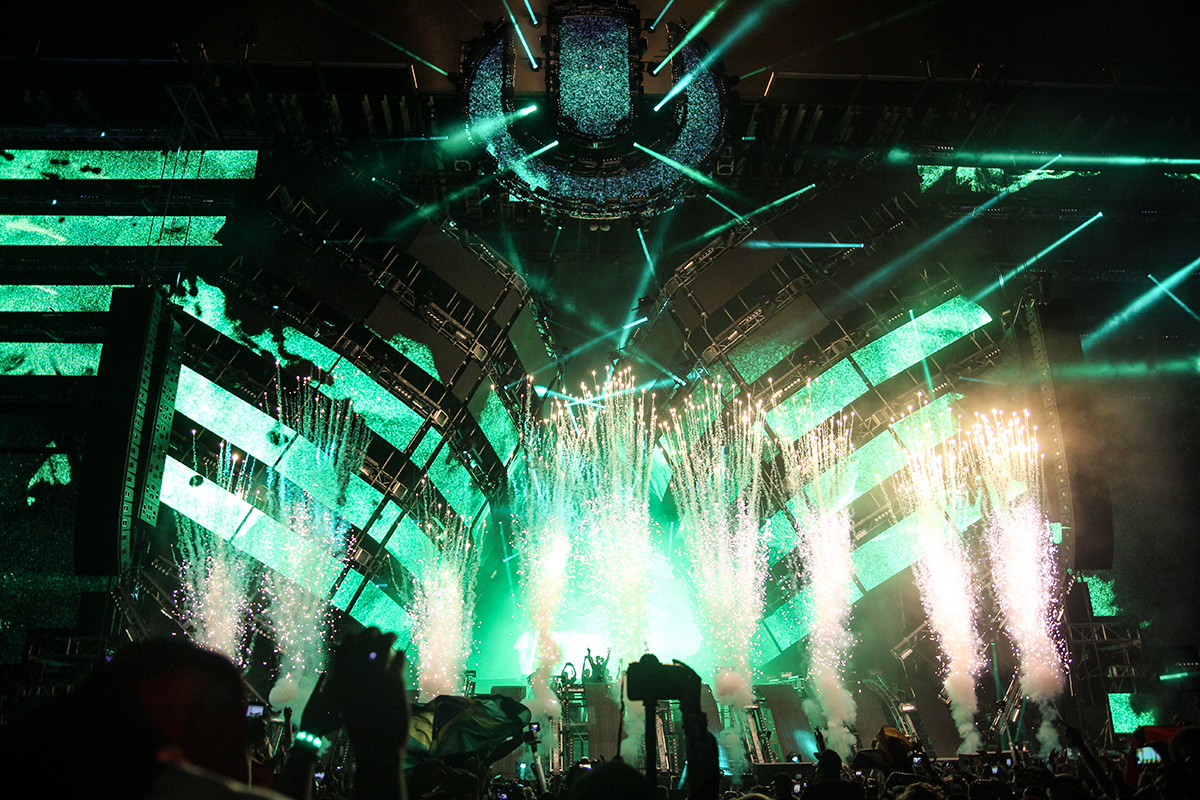Lack of accessible and free water. Lax security. Bad traffic management.
These are just a few of the problems festival-goers may have bumped into at Ultra Music Festival this past weekend. Ultra, like many other EDM events and large music festivals, has historically grappled with safety problems, such as the trampling of a security guard and three deaths in the past four years. That number now includes UM senior Adam Levine, an involved and well-liked student leader who passed away after seizure complications at Jackson Memorial Hospital.
Ultra has so far tried to address safety issues with minor changes in the past few years, such as a stricter prohibited-items list as well as the ban of minors from the event, though the effectiveness of those measures is debatable. What must be demanded from the festival organizers now is a culture of accountability and education.
Ultra attracts more than 100,000 people from across the world each year to Bayfront Park, and organizers know that many attendees will be consuming alcohol and using drugs, as is common in rave culture. Even substance-free festival-goers will be spending hours out in the sun, dancing and sweating in the crowded heat.
These conditions can quickly lead to fatigue and dehydration, so easy access to free water and emergency medical care should be a given for all attending the event.
The festival organizers are not nearly cautious enough at this point. There are only two free water spigots at non-central locations and attendees may view overpriced bottled water as a barrier to hydration. Ultra has suffered incidents in the past of people unknowingly accepting spiked water from strangers, including an incident in 2013 when an attendee fell into a coma after drinking water that had been laced with antifreeze.
Monica Salazar, co-founder of the Electronic Music Alliance (EMA), a newly-formed EDM coalition advocating for a safer party culture, has urged for more safety measures. “We hope the city of Miami and Ultra will develop a better working relationship to make the event safer for both local citizens and attendees,” Salazar said after Ultra 2014.
EMA’s many programs offer drug education, drug-purity checking kits and medical services, such as Zendo, a psychedelic first-aid service offered to music festivals.
“PLUR,” an acronym for peace, love, unity and respect, is a phrase commonly thrown around at EDM events that refers to the communal sense of harmony festival-goers often experience. If this atmosphere is supposed to be one of the main enticements of the festival, Ultra needs to show that it cares for its attendees. In the least, the organizers can implement reasonable safeguards to stop a preventable problem from snowballing into an irreversible tragedy.
Editorials represent the majority view of The Miami Hurricane editorial board.






